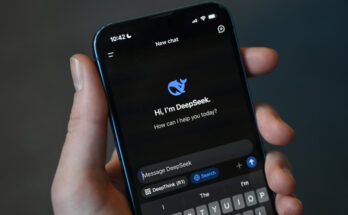Key Takeaways
- National security concerns have been raised by a cyberattack that targeted U.S. telecom networks and was linked to China.
- The hack exposed major providers, including Lumen Technologies, AT&T, and Verizon.
- Law enforcement wiretap systems are thought to have been accessed as part of the attack.
Chinese-sponsored hackers have confirmed a significant cybersecurity compromise, according to the FBI and the Cybersecurity and Infrastructure Security Agency (CISA).
According to reports, the attackers, who are associated with the Chinese hacker collective Salt Typhoon, had access to law enforcement’s court-approved eavesdropping systems and took data pertaining to court-ordered U.S. law enforcement demands.
Although organizations affected by the attack were not named in a joint statement issued by the FBI and CISA on Wednesday, the Wall Street Journal had previously reported that the attack had compromised networks belonging to several telecom companies, including big players like AT&T, Verizon, and Lumen Technologies.
Since 2020, Salt Typhoon, a highly skilled hacker collective thought to have Chinese government support, has been in operation.
The Salt Typhoon group focuses mostly on organizations in North America and Southeast Asia; however, previous campaigns such as Flax Typhoon and Volt Typhoon have been exposed. As part of its espionage activities, the group is well-known for its attempts to intercept network traffic and steal confidential information.
According to reports, Salt Typhoon was responsible for a cyberattack in September that compromised vital infrastructure elements, including Cisco routers, and broke into US internet networks.
With prior attacks on industries like power plants and water treatment, this hack contributes to an increasing trend of Chinese cyber espionage targeting vital U.S. infrastructure.
The hack also occurs at a time when China and the United States are engaged in a fierce competition for supremacy in AI semiconductors and technology. In light of the ongoing threat of state-sponsored cyber espionage, it rekindles worries about the weaknesses in America’s broadband networks.



